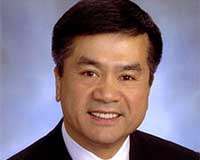 |
Beijing (AFP) May 27, 2011 China tightened security Friday in an area hit by unprecedented protests by ethnic Mongols upset with Chinese rule, witnesses said, as calls for further demonstrations were reportedly circulating online. Repeated protests have been reported in north China's Inner Mongolia region after the killing this month of an ethnic Mongol herder ignited long-simmering anger over charges of Chinese political and cultural oppression. Thousands of protesters once again took to the streets on Thursday in two locations in the vast region's Xilingol area where the herder's death occurred, the US-based Southern Mongolian Human Rights Information Centre said. It was not immediately clear whether further protests took place on Friday. But tightened security was reported in the area as Chinese authorities are no doubt fearful of another major outburst of ethnic turmoil following deadly unrest in Tibet in 2008 and the remote northwestern Xinjiang region in 2009. An official in the Left Ujumchin Banner, or Xiwuqi in Chinese, told AFP by phone that security officers had sealed off his government office building on Friday morning. "Yes, it's sealed off to avoid trouble," he said, declining to give his name. He and other police and government officials declined further comment. A banner is equivalent to a Chinese county. A Mongolian woman who operates a hardware store in the area also said a key road had been sealed off. "Yes, the road has been blocked since this morning. A lot of armed police have been deployed," she said. The unrest was sparked by the May 10 death of a Mongol herder who was run over by a truck driven by a member of China's dominant Han ethnic group, the Mongol rights group said. China is home to an estimated six million ethnic Mongols who have cultural and linguistic links with the Republic of Mongolia to the north. Many harbor deep resentment over alleged Chinese repression and encroachment on traditional pasture lands by Han mining and energy interests. Many in Inner Mongolia complain their plight has been overshadowed internationally by Tibet and Xinjiang, despite similar grievances against Chinese authorities. Mongols in the region told AFP by phone there is also growing anger over the continued disappearance of Hada, China's most prominent ethnic Mongol dissident. Hada completed a 15-year jail term in December imposed after he called for ethnic Mongol rights, but his supporters say that he and his wife Xinna and their son Uiles have since vanished into police custody. Calls for further protests over the coming week were being circulated among Mongols on the Internet, an ethnic Mongol in the regional capital Hohhot, who asked not to be named, told AFP. The Mongolian rights group said the calls were urging "all Mongols to inform each other to take to the streets to defend the lands and rights of the Mongols". The group posted pictures on its website purportedly showing Thursday's protests, in which crowds of mostly Mongol youths are seen holding banners and marching through Left Ujumchin Banner and the Huveet Shar Banner, known in Chinese as Xianghuangqi. The Mongolian rights group said the protesters' Mongol-script banners bore slogans such as "Defend the rights of Mongols" and "Defend the homeland". A tight crackdown by China is almost certain. Chinese authorities are already in the midst of a broad nationwide clampdown on dissent, apparently aimed at heading off any possibility of Arab-style "Jasmine" protests. Tibet and Xinjiang remain under tight security. The herder who died, named Mergen, had been among a group of Mongols who attempted to block a caravan of coal-hauling trucks in Xilingol, the Mongolian rights group said. They had been angered by an influx of miners that had displaced herders, destroyed grazing lands and killed livestock. The Xilingol government has said four people were arrested over the killing and the destruction of pasture lands.
Share This Article With Planet Earth
Related Links China News from SinoDaily.com
 Locke vows to raise rights concerns with China
Locke vows to raise rights concerns with ChinaWashington (AFP) May 26, 2011 Gary Locke, the nominee to be the next US ambassador to China, promised Thursday he would be a forceful advocate for human rights while still seeking broad cooperation with Beijing. Locke, the commerce secretary who would be the first Chinese-American ambassador to Beijing, enjoyed an unusually friendly reception at his Senate hearing, with lawmakers saying he was virtually sure to win confi ... read more |
|
| The content herein, unless otherwise known to be public domain, are Copyright 1995-2010 - SpaceDaily. AFP and UPI Wire Stories are copyright Agence France-Presse and United Press International. ESA Portal Reports are copyright European Space Agency. All NASA sourced material is public domain. Additional copyrights may apply in whole or part to other bona fide parties. Advertising does not imply endorsement,agreement or approval of any opinions, statements or information provided by SpaceDaily on any Web page published or hosted by SpaceDaily. Privacy Statement |